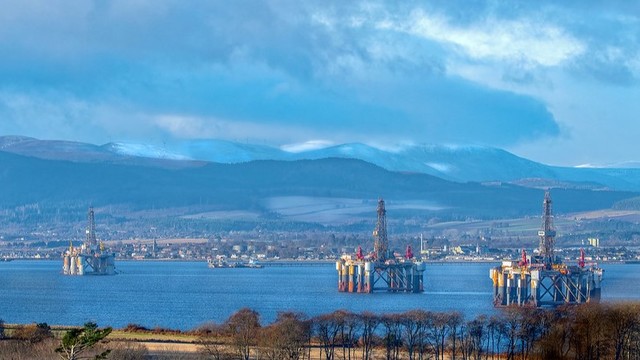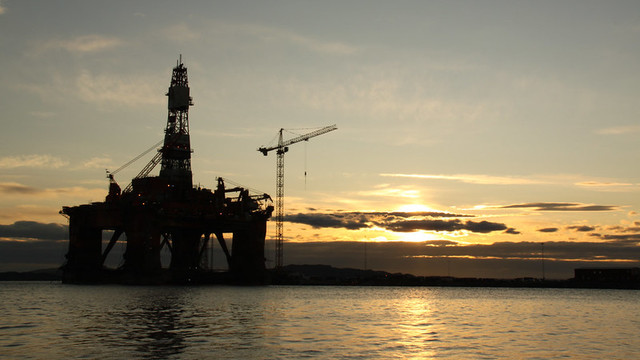People power applies climate pressure
People around the world are putting increasing pressure on world leaders to take action on climate change, as demonstrated by this week's climate march in New York.


More than 300,000 marched in New York to call for action on climate change (Photo: Copyright John Minchillo)
Nearly 400,000 people turned out for a noisy, good-tempered purposeful march through the streets of Manhattan on Sunday. Old and young, from all corners of the world, we called for action on climate change.
Two dozen sat silent in Central Park in yoga poses, willing us on, as a helicopter whirred loudly overhead. The Twitter-sphere was electric with reports from across the world, and we took heart from seeing on the big screens the demonstrations earlier in the day in Australia, Indonesia, Paris, London and Mexico.
New York saw the largest public gathering on climate since the Copenhagen summit in late 2009. Christiana Figueres, Amina Mohamed and Mary Robinson joined in the carnival atmosphere. It is some years since I have been in such a big crowd. I had forgotten the rush of energy and sense of belonging as the crowd moves off, the roar of voices as chants are taken up and the beat of the marching bands keeping people dancing along.
All this week, the UN General Assembly will be in session. On 23 September, the Secretary General's special Climate Summit will focus on catalysing action for getting climate change under control. Ban Ki Moon is keen on getting countries to start putting down firm pledges for what they will deliver, well in advance of the next big climate conference in Paris December 2015.
We all want to avoid another summit like Copenhagen in 2009, when many heads of state gathered but there wasn't enough to agree on. While optimists point to a few small gains from Copenhagen, in all honesty we were all cast down by the lack of political ambition and absence of leadership by all the big players.
Actions that are having an impact
But Copenhagen taught us a very important lesson. You won't get the political leadership on an issue as complex and deep-rooted as climate unless you build knowledge, confidence and interests among domestic constituencies – corporate, ministerial, parliamentary and local government.
People need to feel that the task is not only doable, but their fellow statesmen and business leaders are getting on with it, too.
Since 2009, we have seen actions develop on a broad scale, which could start to reach critical mass. Quite a number of banners at the march called for a carbon tax, and the World Bank reports this week that 73 countries, 22 states, provinces and cities, as well as more than 1,000 firms now back a price on carbon. Together these cover 54 per cent of global greenhouse gas emissions. These include China, South Africa and a number of US states, as well as less likely candidates such as Russia.
Carbon pricing brings about change. Before the new Australian government ditched its carbon tax earlier this year, it is reckoned that greenhouse gas emissions were down by 18 per cent.
Some countries have managed to get politics out of the climate debate by instituting cross-party climate commitments enshrined in law. Some corporate CEOs have played a hugely valuable role by showing their peers that you can increase returns while making the company more resilient to climate shocks. And a growing number of investors are increasingly taking on board the risk associated with not addressing climate change.
Taking on the fossil fuel sector
Many banners at the march flagged the evils of fossil fuels, and kids on the march kicked around a big black inflatable, representing the oil industry. Protesters called for an end to subsidies and for divestment by institutional investors such as universities, churches and pension funds.
This is starting to gain momentum, but there is a lot of inertia in the system because of the deep entanglement of fossil energy with our economic performance and financial systems. Still, the risks to investors from continued holdings of fossil fuels are starting to become apparent, with a growing carbon "bubble" on financial markets that needs to get deflated before it bursts.
The New Climate Economy report, launched last week, argues that the next 15 years are critical to avoid extreme and irreversible climate change. The deep structural transformation of our energy systems offers better growth and a better climate, but the fossil fuel industry isn't going to go away quietly, nor are countries reliant on this resource likely to give up the revenues they have been reaping from continued demand for barrels of oil.
Ultimately, there are big political questions to be faced – how will these big fossil fuel interests be bought off? One demonstrator on the Manhattan march had the answer: librarians speak truth to power.
The answer has to be not only librarians, and accountants but everyone else too. People power worldwide must give our political leaders a very clear message – we'll support you if you have the courage to bring in a carbon tax, shift us onto a low carbon path and take on the power of the fossil fuel sector.
And you'll suffer political collapse if you ignore us!
Camilla Toulin (camilla.toulmin@iied.org) is director of IIED.



